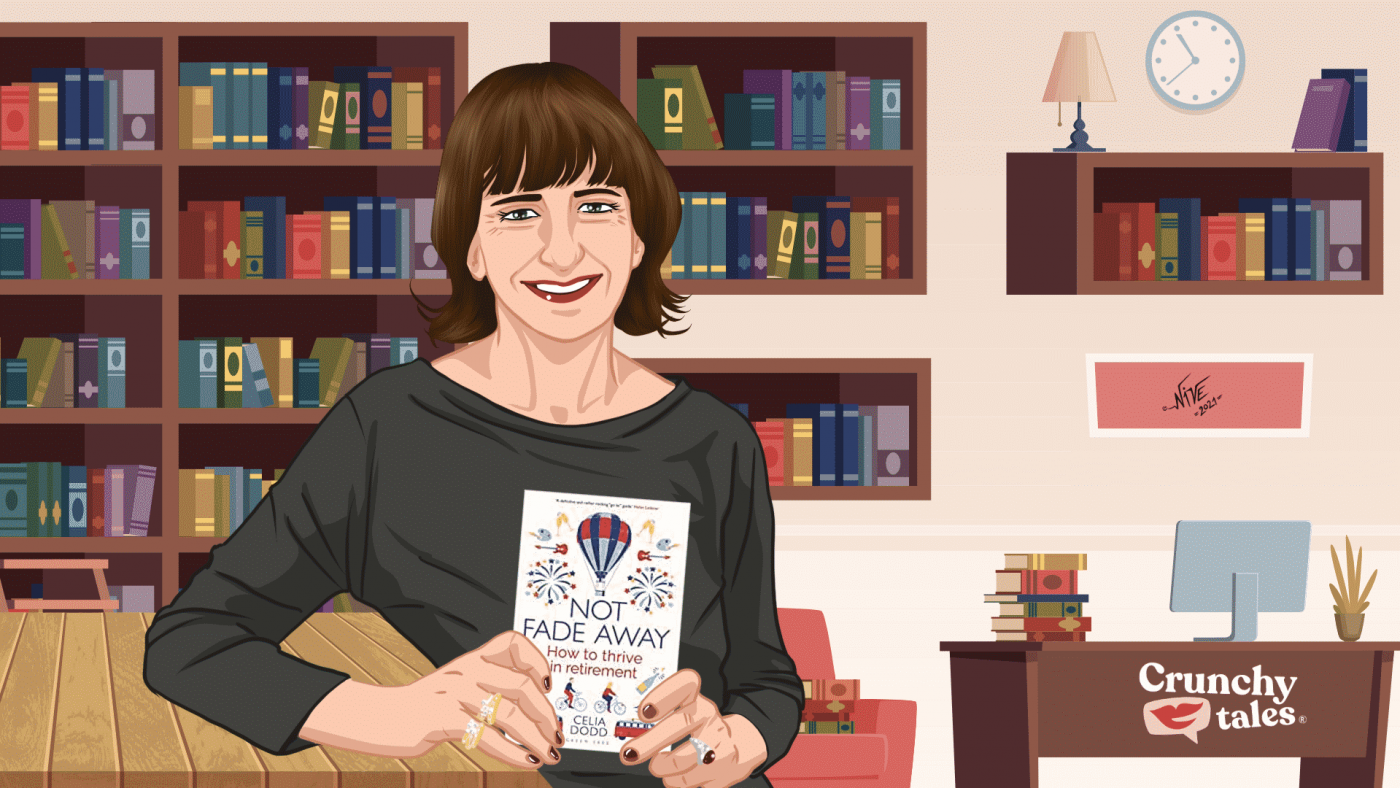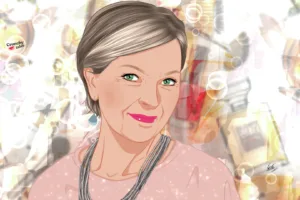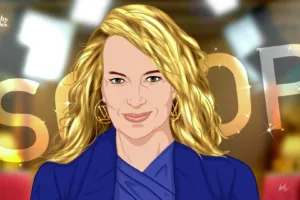Author Celia Dodd: “Retirement Is About Change, Not Age”
Are you afraid of retirement? Think again. According to Celia Dodd, journalist and author of “Not Fade Away: How to Thrive in Retirement” (Green Tree), this may be a once-in-a-lifetime opportunity to be yourself and do what you want to do. “It offers new possibilities for personal growth through learning, retraining, travelling and friendship – she explains-. But it is also one of the biggest transitions we face and brings huge psychological and emotional challenges“. Celia helps us to make up our own minds and take control of our future.
Retirement can be seen as the end of one chapter and the start of another. How did you decide when to close the first chapter?
That’s a really helpful way to frame retirement – as the start of the next phase of life, with all kinds of new opportunities to look forward to – rather than just an ending, which is the way it’s often seen. Knowing when to close the first chapter is a very individual decision. It’s relatively easy for people who know what they want to do in retirement, whether it’s setting up a business or travelling or volunteering. But most of us have to weigh up a jigsaw of different issues, like finances, family commitments, and how much we enjoy work. That takes a lot of careful thought and self-reflection about what has real meaning and purpose for us, and how we really want to spend our precious time. It helps that retirement is becoming more flexible, so it’s possible to move gradually from one chapter into the next, rather than closing one chapter abruptly.
I have to confess that I’ve not retired myself yet – although my husband is. Like a lot of women, I’m enjoying being able to focus single-mindedly on my work after years of fitting it around bringing up my three children. Of course, it helps that I work from home.
Many women feel like they become invisible when they grow older and the idea of retiring might frighten them. How can we tackle this issue and avoid fading away?
It’s totally understandable that many women fear the loss of status when they retire. People are generally valued for their professional status, and for juggling several balls at once, so retirement can make people – especially women – feel undervalued or even invisible. It doesn’t help that negative stereotypes about older people haven’t kept pace with the realities of retirement today. The problem is that it’s hard not to absorb these negative stereotypes yourself, and that can really damage self-confidence and self-esteem. It can lead to all kinds of self-limiting beliefs: that “I’m too old to do or start something. You’re never too old!”
Many women say that they dread the “What do you do?” question when they meet someone new, and the way the other person’s eyes glaze over if they say they’re retired. The answer is to be able to come up with a positive and interesting response so that instead of saying: “I used to be a ……“, you can say, “I’m learning Italian‘ or ‘I mentor young graduates who are new to my former profession.”
Another way to counteract negative attitudes is to take control of the identity you present to the world and ignore other people’s expectations of older women. It’s not just about how you look, but about having a presence when you walk into a room, and that comes from being curious and ready to keep learning about life and about other people. It helps that there are more high profile role models of older women now, in all walks of life, and they can be inspirational.
Nowadays, it’s not uncommon for baby boomers to continue to work well into their 60s, 70s or even 80s. When should one start actively thinking about retirement?
Again, it’s a very individual question, and what’s wonderful about retirement now is that there are no rules. My mother-in-law, who is a children’s author, is still writing best-selling books at 94. It depends a great deal on the nature of your work, how much you enjoy it, and what you want to do next. But even if you have no immediate plans to retire, it’s important to think about how you’d like to spend your time in retirement, and where you’d like to live, as early as possible. That allows time to put plans in place: you may need to train or take a course to move into a new area of part-time work or for a volunteering role. Many people I interviewed for my book wished they’d started making plans for retirement much earlier – at least 18 months before they stopped work.
One week you are working then the next week you are at home with so much spare time. What advice can you give to those who may be retiring about how to organise their time?
Many people feel they’ve earned a complete break when they first retire, and that’s fine – in fact, it can be a fantastic opportunity to reflect and take stock. But it’s wise to set yourself a time limit of, say, three months. After the honeymoon period, most people need some kind of structure to their week; otherwise, there’s a danger that they procrastinate and never get round to achieving all the things they would like to. That leads to dissatisfaction and a lack of fulfilment – and that can be bad for mental health. So it’s good to have a couple of regular commitments that you have to get up for every week, whether it’s an exercise class or a volunteering role or a bike ride with a friend. The rest of the week can take shape around these anchors.
It’s also important to build contrasts into your daily and weekly routine, between days when you’re free to do whatever you feel like, and days when you’re busy with commitments. Many people like to keep the weekend special too, by doing very different things than they do during the week (that’s easier if your partner is still working full-time). It also helps to give shape to the year ahead with dates in the diary for holidays, concerts, festivals, weekends away and visits to friends.
How can we keep positive and thrive during our retirement?
It sounds so obvious, but the bottom line is to pay attention to your physical and mental wellbeing. The great thing about retirement is that there’s more time to think about what you eat and to build new habits with exercise and all the other activities that nurture the body, mind and spirit.
It is also essential to find a new purpose that has real meaning to you: something that gets you out of bed in the morning with a spring in your step. Finding new purpose can take time and self-reflection, even soul-searching, and if you’ve been able to set this in motion before you retire you can really hit the ground running. Fulfilment ultimately comes from a willingness to experiment with different possibilities and to learn from mistakes.
The most positive retired people look forward, not back. They’re curious and are keen to keep learning and expanding their horizons. They’re also prepared to get out of their comfort zone and challenge their own ideas about what they enjoy doing, and what they’re capable of.
For me, the key is to spend time with people of different ages, and not just with your own generation. It broadens the mind and it’s energising! If you don’t have kids or godchildren you may need to be proactive in finding a course or a place to volunteer where there’s a mix of ages. I’ve discovered that evening classes have a better mix than daytime courses.
Is it a good idea to discuss retirement with your friends and colleagues who have already retired or just keep it to yourself and your partner?
This is probably the best way to work out what the right decisions are for you. That’s because each retirement is so individual. So hearing other people’s stories about what’s worked for them, as well as what they’d do differently, is a great way to start thinking about what might work for you. That’s why I interviewed sixty retired people for my book, from a fashion designer to a train driver, to give a wide range of very personal experiences of retirement. I’m not suggesting that readers should copy them, but they can learn so much from their example.
Of course, it’s also important to talk to your partner about how you’ll manage this massive life transition together. Yet it’s surprising how many couples don’t get round to the discussion, perhaps because they’re a bit nervous of talking about the challenging issues it might raise.
Don’t you think retirement should be taken more seriously and get more publicity than the usual Life insurance adverts? Maybe it’s time for a re-branding?
Absolutely! It’s such a shame that people really fear the ‘R’ word, and so they go into a kind of denial and fail to plan for it – and that’s a vicious circle. The image of retirement is stuck in the past and the silver-haired models aimed at my generation just don’t ring true. It’s still associated with ‘retirement homes’ and seen as a passive phase of life where people spend their time either travelling or looking after grandchildren. In reality, retired people are engaged in a vast range of different activities and that needs to be reflected.
Because retirement isn’t taken seriously there’s a real shortage of help in planning for this huge psychological and emotional transition. There’s plenty of financial planning – and of course, that’s key, but it’s not enough. People need to be inspired to look at retirement in a more positive light, and to be more proactive in making retirement work for them. After all, it’s the first opportunity most of us have to do what we like with our time, so it’s a waste not to make the most of it.
What in your opinion is the most important “take-home point” regarding retirement?
Retirement is about change, not age. The challenges of retirement are much more to do with managing one of life’s biggest transitions than they are about ageing. To do that successfully you need to be proactive – often more proactive than you had to be at work.





